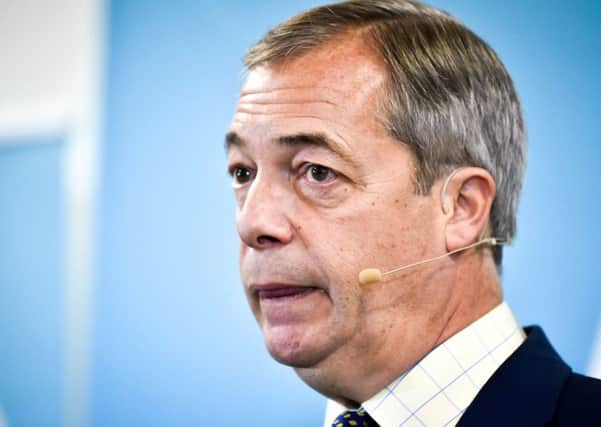The Scotsman says: Everyone must be alive to effect of tactical voting


At the European Parliament elections in May, the ground shifted under the feet of many voters. The newly formed Brexit Party went from nothing to top the poll on 31.6 per cent, while the Liberal Democrats came second, with the Conservatives in fifth place behind the Greens and Labour.
This was widely taken as a warning from pro-Brexit voters to the Conservatives and it would appear that Boris Johnson’s approach has managed to win back many of the defectors to Nigel Farage, with the Tories on 41 per cent and the Brexit Party on just six in a recent Deltapoll survey.
Advertisement
Hide AdAdvertisement
Hide AdAlthough Johnson was forced to delay the UK’s departure from the UK, just like Theresa May, Leavers seem to trust him. Even Farage, as he announced his party would not contest the 317 seats won by the Tories in 2017, said that “I can see right now that by giving Boris half a chance ... I think our action, our announcement today, prevents a second referendum from happening.”
So Farage is essentially forcing his own supporters to vote tactically, possibly for the party they supported until recently, in order to achieve what he regards as the ultimate aim.
While, ideally, everyone should vote for the party that best represents their beliefs, tactical voting is a fact of democratic life and looks likely to be more of a factor than ever on 12 December.
The Scottish Conservatives recently appealed to unionist Labour voters to back them in order to block the SNP’s hopes of a second independence referendum. But, equally, the SNP might be the best-placed party for unionists for whom remaining in the EU is the more important issue or SNP supporters could back the unionist Lib Dems in the hope of stymying Johnson’s Brexit plans.
Plenty of people will already be mulling over hitherto unimaginable choices. It may be that individual voters decide to stick with the party they have always supported. It is a hard thing to do to abandon any heartfelt cause. But, as the decision by two former Labour MPs to call for people to vote Tory showed, these are strange times.
The Scotsman is not going to presume to tell anyone how to vote and is not advocating tactical voting, but everyone should be alive to the possibilities in each individual constituency because the political landscape has changed in a remarkably radical way.